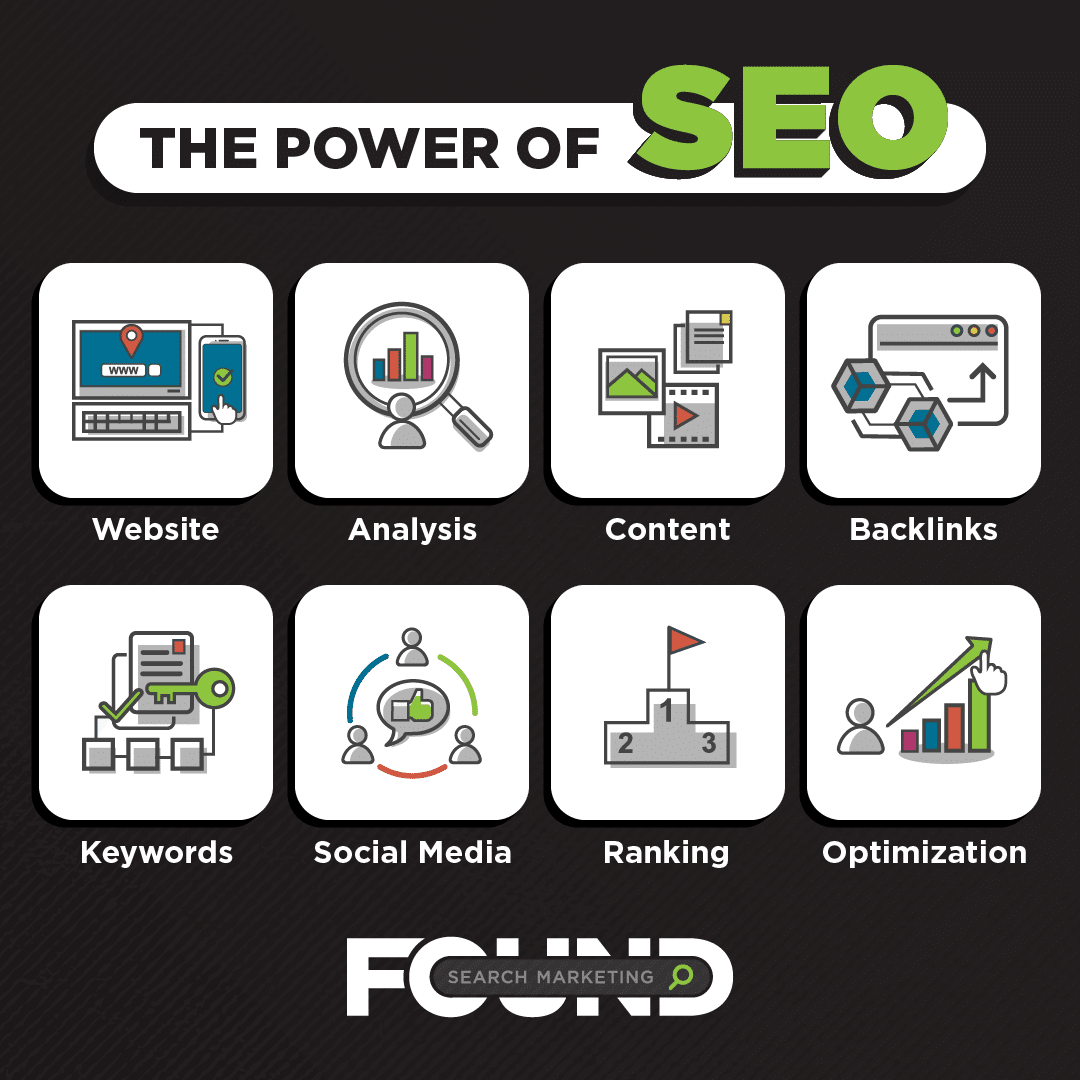Content Best Practices to Improve Search Engine Ranking
A comprehensive content library is vital to the success of virtually every company. But just having content isn’t quite enough for success. After all, if you’re going to create content, you may as well create it right. This means working to improve search engine rankings for the pages you create and the content you produce.
Search rankings refer to how high your website and its content appear on search engine results pages (SERPs). When people search, they use keywords or phrases. The content with the highest search rankings gets prime real estate in search engines like Google and Bing. It is far more likely that a link on Page 1 will be clicked than on any other page.
To achieve maximum impact, your content should be easily discoverable by those who want to consume it. That means your content should have high search rankings for the target keywords that matter most to your company and its clients.
There are a variety of techniques to improve search engine rankings. They’re not always difficult, but they do require a lot of forethought and strategizing to do right.
Why is it important to improve search engine ranking?
Search engines are the most common way to build organic search traffic. Simply put, outside of targeted advertising or word of mouth, organic traffic is the only real way people who don’t know about your organization can most easily learn about it.
Google and Search Engine Optimization
Google is the world’s largest search engine, dominating the market with 93% of Earth’s search market share. Google search results are a powerful tool for users and marketers alike, and creating content designed to rank high in the search engine is vital to the success of your content strategy.
While you can chase Bing’s somewhat less-traveled roads, Google is where most people go for daily searches, and ranking high on Google can improve your brand’s authority and credibility. When you’re developing a search engine optimization (SEO) strategy, it would be foolhardy to not account for them.
Google organizes webpages into a certain order based on multiple factors. Exactly what their much-discussed algorithm actually tracks is a well-guarded secret, but the evolution of search rankings has been a crazy ride.
In the early days, websites ranked by “keyword stuffing,” which first entailed simply copying and pasting certain keywords hundreds of times in non-visible code. Eventually, Google caught on and began tweaking the search algorithm to adjust for relevance and domain authority in addition to just the presence of a certain keyword or phrase. On-page SEO became more complex and important.
Today, Google’s algorithms are designed to reward high-quality, relevant content. Domain authority and relevance are the big factors to consider, and Google has a lot of tools to help you track KPIs and improve search engine rankings for your posts and pages. Using Google Search Console, Google Analytics, and Google Business Profile are just a few of the programs that can help get your content and brand identity out to more potential clients.
Domain authority is your site’s credibility and trustworthiness. In essence, if your site covers the keyword you’re ranking for and a variety of related keywords in its content, the site’s domain authority increases. In other words, if you create compelling content in a host of areas for the target keyword and its related keywords, you’re more likely to rank higher.

The SEO company Backlinko conducted a survey of 4 million Google search results and found that the number 1 result on a SERP is 10x more likely to be clicked than the number 10 result, and only 0.63% of searchers even bother going to the second page. That means Page 1 is prime real estate, and the chances of getting clicks past Position 1 drop significantly with each spot. In other words, organic search is far more effective if you’re on page 1 than anywhere else.
Content Creation Best Practices
Content creation is a critical aspect of improving search engine rankings and driving traffic to your website. To create content that is effective in improving search results, it’s essential to focus on producing high-quality, relevant content that meets the needs of your target audience.
One way to ensure your content is relevant is by utilizing a keyword ranking API or local rank tracking tool to identify the most relevant target keywords and phrases for your industry or niche. This can help you to optimize your content for search engines, which can increase your visibility and improve your search engine rankings.
Focus on creating informative and engaging content that provides value to your audience. This includes incorporating multimedia such as images and videos, utilizing internal linking to other relevant content on your website, and making sure your content is optimized for mobile devices. By following these content creation best practices, you can improve the visibility of your website and establish your brand as a thought leader in your industry, ultimately driving more traffic and increasing conversions.
Identify Your Audience
Identifying, and marketing to, your target audience is the biggest driver of success. They’re the ones ultimately giving you money for your services, so knowing exactly who they are, what they value, and what drives them is key to success. Writing generic content targeted at no one in particular, or even worse, everyone in the world is a futile gesture that will only lead to disappointment and low engagement. You should know specifics about your audience, including their average age range, their education level, what types of businesses they work for, and their income levels. This allows you to create content tailored to them and their needs, making them more likely to take an interest in you.
Choose High-Performing Keywords
Once you know who you’re writing for, it’s easier to learn what keywords they’re using when they scour search engines. There are many tools you can use to locate keywords, from Google Adwords Keyword Planner to Semrush Keyword Tool to Keyword Tool.io.
There are a variety of other ways to decide which target keywords to pursue to improve search engine rankings. You can audit your own site or do a keyword analysis of a competitor’s site. The idea is to narrow down exactly what your target audience needs, and what they’re searching for to meet those needs.
Search Intent
Search intent is a crucial factor to consider as you work to improve Google rankings. Search engines focus on delivering the most relevant results to users based on search intent rather than just matching keyword phrases.
As people continue to use mobile devices to search the web, Google prioritizes mobile-friendly sites in their search results. If your site loads quickly and is easy to navigate on mobile devices, it will likely rank higher in Google’s mobile search results.
Understanding user intent is also critical. Google is constantly improving its algorithms to better understand the intent behind a user’s search query. If your content matches the user’s search intent, Google is more likely to rank your site higher in the search results.
Create High-Quality Content
All of the targeting, keyword research, and audience analysis in the world won’t help you if you’re not creating the types of content your site’s visitors want. People are looking for relevant content that speaks to their pain points. If your content is comprehensive, informative, and interesting, people will read, watch, listen, and share it. If it’s not, they won’t.
But how do you know if your content is relevant and of sufficient quality? The key is knowing (and learning) what your customers want. Ask and answer specific questions in your industry that meets the needs of your customers, and align your content to solve their problems. Create an overview of the problem, and ask the exact questions your customers are asking. Then answer them with as much detail as you can.
Along the way, you’ll use keywords and phrases naturally, and those you don’t get to, you can add in during the editing process.
Focus on Boosting Organic Search
Organic search traffic comes to your site from search engines. Organic search visibility increases your chances of bringing targeted, high-quality traffic to your website, the first step in using your web page and blog to increase conversions.
Improving organic search results is your ultimate goal. There are several ways you can improve organic search. Here are a few:
- Use internal links. Linking to your content is the easiest way to keep people on your site. Linking to more information about a topic sends readers down a rabbit hole on your site. Whether your content is engaging enough to spur this kind of activity is another matter, but making it easier for your readers to read more on your site can only help you.
- Fill out that metadata. Filling out metadata, from meta descriptions to alt image text, are fields content creators often overlook, and it impacts their SEO more than they know. Take the extra step to fill out that additional data.
- Study the competition. You can learn what your competitors are doing well and where they aren’t, and adjust your strategy to either align with them or provide counter programming based on your strategies. Semrush has an organic research tool that can help you see where your competitors are doing well, and where they aren’t.
- Optimize for image SEO. Images improve organic search in many ways. If you’re not using images, you’re not getting full value for your web pages and blog posts. Everything from image size to meta descriptions and alt text to the file name impacts search engine optimization and the Google algorithm. Don’t overlook the importance of pictures.
- Conduct a keyword gap analysis. A keyword gap analysis helps you identify the keywords you should be ranking for and what your competitors are ranking for. Each one is a new opportunity to wiggle your way into a new area or organic traffic. Use a keyword gap tool to compare yourself to your main competitors.
- Clean up bad links. Not all links are good for your site. Bad links, sometimes called toxic links, can negatively affect your rankings, and reputation, and impede your organic traffic. Outdated or broken links should be removed regularly across your site, and you should avoid buying links or using automated programs or services to create backlinks or links from low-quality directories of bookmark site links. All hurt your Google rankings and work against your goal.
- Optimize for Core Web Vitals. Google uses Core Web Vitals to measure your site’s overall user experience, measuring three specific page speed and user interaction measurements: Largest Contentful Paint (the load time for your main page content to load), First Input Delay (the time it takes your page to become interactive), and Cumulative Layout Shift (the amount of unexpected layout shift).
- Don’t forget local SEO. For businesses with a physical location, optimizing for local keywords is crucial. Where relevant, add the city or region where the business is located to relevant pages on the website. This helps Google understand the local intent of the search query and can improve rankings for local searches.
Optimize Your Content for Search Engines
Optimizing content is the next step in creating content. Optimizing your content for search means you’re inserting keywords into your content at the proper density and ensuring your main words appear in the title, meta description, and in at least one heading. Have a strong headline that spells out exactly what your blog is about.
In addition, keeping your content scannable by using short paragraphs, plenty of headings, and bullet points and lists allow your readers to have quick takeaways if they can’t read your entire blog.
Let FoundSM Help You Improve Search Engine Rankings
Found Search Marketing was founded by former Google employees, and is a leading digital marketing agency. With the tools and the know-how to help you improve search engine ranking for a variety of top terms, FoundSM can help you develop a strong content and SEO strategy to convert more leads into customers.
You May Also Like
These Related Stories

SEO Basics: 7 Simple Tips to Improve Search Rankings

How to Increase Your Organic Search Rankings In 7 Easy Steps

No Comments Yet
Let us know what you think